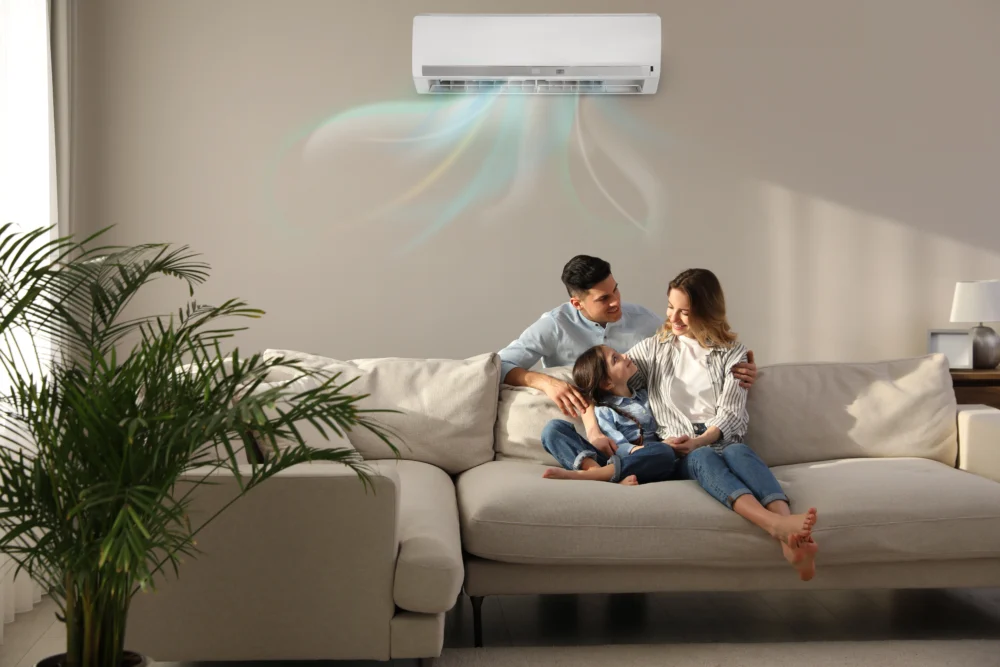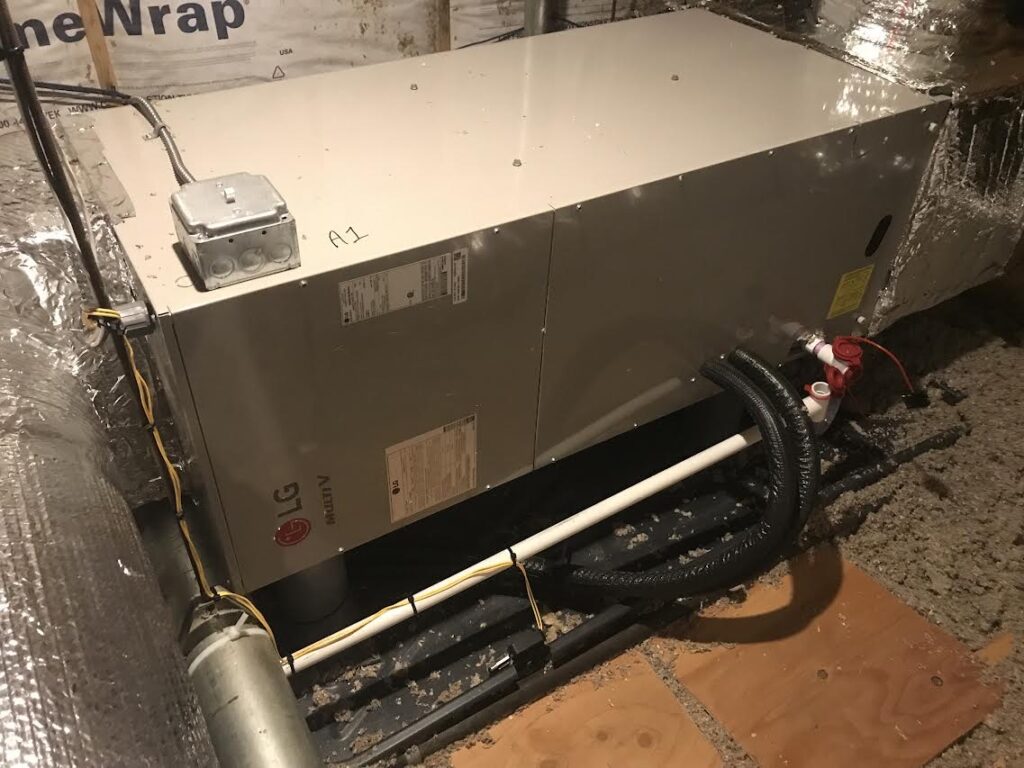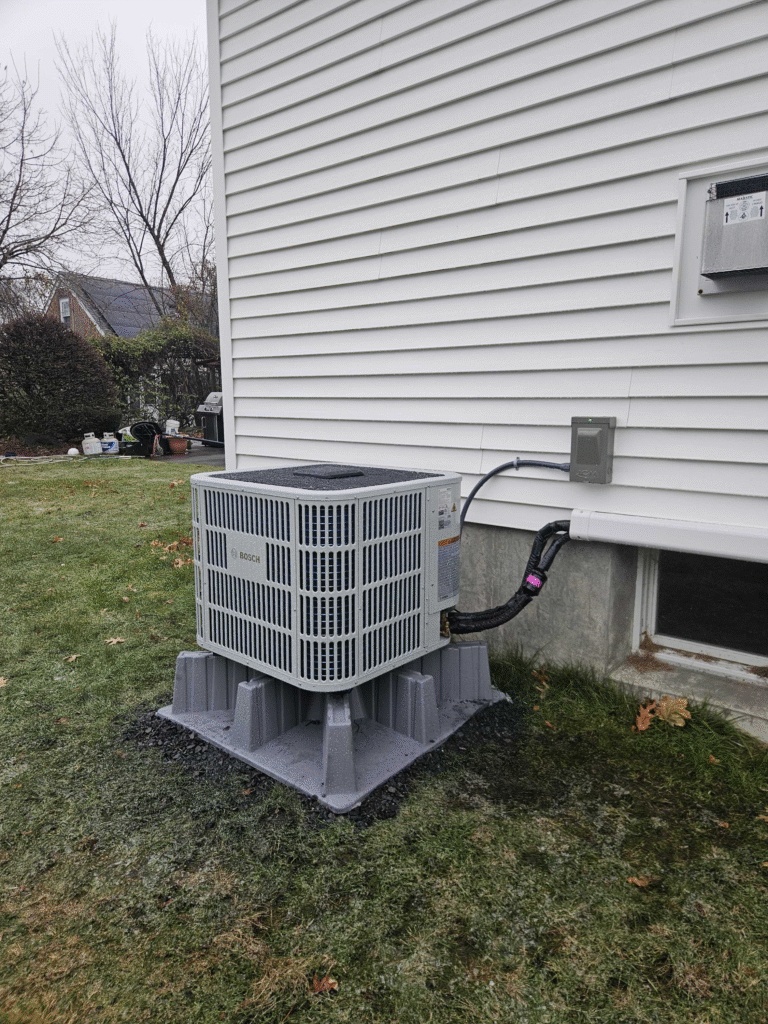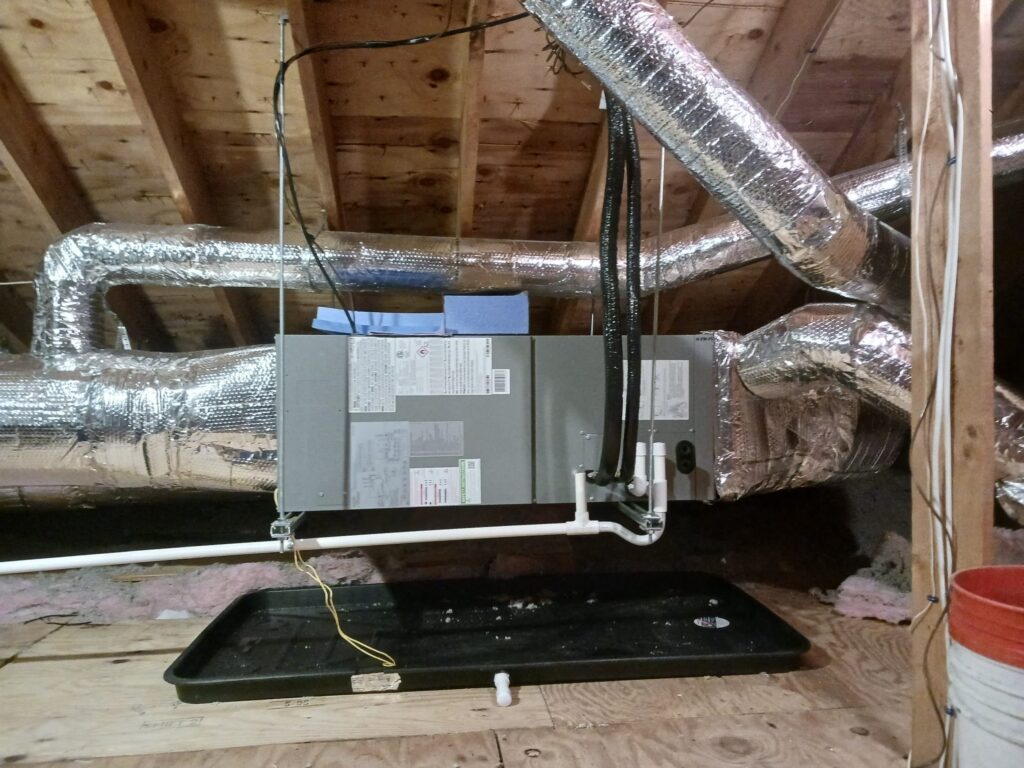
When it comes to heating your home in Massachusetts, your options boil down to two categories: the old-school method (electric resistance heat) and a more modern, energy-saving alternative (mini-split heat pumps). Both have their place, but depending on your goals—comfort, energy savings, or long-term cost—they couldn’t be more different.
So let’s break down the pros, cons, and key differences in a way that’s easy to understand—without skimping on the facts.
First, Let’s Talk Heating Basics
Electric resistance heat is the “plug-and-play” option. Think baseboard heaters or electric furnaces. It works by converting electricity directly into heat—simple, but not efficient.
Mini-split heat pumps, on the other hand, are multitaskers. They don’t generate heat—they move it. In winter, they pull heat from the outdoor air and bring it inside. In summer, they do the reverse. Bonus? Many models also dehumidify, zone your home, and run quietly.
How Does Electric Resistance Heating Work?
Picture a toaster—but for your house. Electric resistance systems send electricity through wires or coils that heat up and warm the room. They’re most commonly found in baseboard heaters, space heaters, and electric furnaces.
They’re relatively cheap to install and easy to use—but they gobble up electricity. So while the upfront cost might be low, your electric bill tells another story.
How Do Mini-Split Heat Pumps Work?
Mini-splits consist of an outdoor unit and one or more indoor air handlers. Instead of making heat, they move it—pulling warmth from outside and transferring it into your home. This process is far more efficient, especially in cold climates (yes, even in Massachusetts!).
You get heating and cooling in one system, individual room control, and significantly lower energy usage over time.
Which System is More Efficient?
Short answer: mini-splits win by a mile.
Electric resistance systems use 1 unit of electricity to produce 1 unit of heat—a 1:1 ratio. Heat pumps, however, can deliver 3–4 units of heat for every 1 unit of electricity. That means more comfort for less money.
Efficiency is often measured using HSPF (Heating Seasonal Performance Factor) and SEER (for cooling). Mini-splits typically score much higher on both.
Upfront Cost vs. Long-Term Savings
Electric resistance heat is often cheaper to install. That’s why landlords or builders sometimes opt for it—it’s a quick, affordable solution. But the tradeoff? Higher operating costs that add up fast.
Mini-split heat pumps have a higher upfront investment, especially if you’re outfitting an entire home. But thanks to lower utility bills—and generous rebates like the Mass Save® heat pump incentives—they pay for themselves over time.
Here’s the thing: if you’re staying in your home for a few years, the math works out heavily in favor of heat pumps.
Maintenance: Simple vs. Smart
Electric heaters require minimal upkeep—just make sure they’re clean and free of dust.
Mini-splits need a bit more care:
-
Clean or replace filters regularly
-
Schedule annual maintenance to check refrigerant and system efficiency
-
Keep the outdoor unit clear of debris and snow
That said, proper maintenance means your mini-split can last 15–20 years or more.
Environmental Impact
Electric resistance systems aren’t exactly green. Because they use so much electricity—and most grid electricity still comes from fossil fuels—they carry a larger carbon footprint.
Mini-splits are far more eco-friendly. Their energy-efficient design lowers demand on the grid and cuts greenhouse gas emissions. Plus, newer models use low-GWP refrigerants that are less harmful to the environment.
If you’re trying to reduce your carbon footprint, mini-splits are the clear winner.
Which System Offers Better Comfort?
Electric heaters warm quickly but cycle on and off, which can lead to temperature swings. They also only heat—no cooling, no humidity control, and limited flexibility.
Mini-split heat pumps offer steady, consistent comfort. You can set specific temperatures in different rooms, manage humidity, and enjoy whisper-quiet operation. They’re also perfect for homes without ductwork.
Use Cases: When Each Makes Sense
Electric Resistance Heat Might Make Sense If…
-
You’re heating a small room or studio
-
You need a temporary solution
-
You’re okay with higher monthly energy costs
Mini-Split Heat Pumps Are Best If…
-
You want to lower your energy bills
-
You’re upgrading your whole-home system
-
You want heating and cooling in one unit
-
You care about efficiency, sustainability, and comfort
Future-Proofing: Where the Industry’s Going
Electric resistance heat hasn’t changed much in decades. It’s reliable—but not innovative.
Mini-splits are rapidly evolving, with smart thermostats, app control, improved cold-climate performance, and better refrigerants. They’re also central to Massachusetts’ clean energy goals and qualify for state and federal incentives.
Final Take: Should You Go With a Mini-Split?
In most Massachusetts homes, the answer is yes. Between the energy savings, rebates, and comfort perks, mini-splits are hard to beat. Sure, they cost more up front—but the long-term return on investment is big.
If you’re replacing baseboards or electric furnaces, Endless Energy can help you switch to a cold-climate mini-split system—and take advantage of all available Mass Save rebates and 0% HEAT Loan financing.
FAQs
Q: Is electric resistance heat cheaper than a mini-split?
Yes, but only upfront. Long-term, mini-splits are significantly cheaper to run.
Q: Can a mini-split handle Massachusetts winters?
Absolutely! We install cold-climate models that work efficiently even in sub-zero temps.
Q: Can I use a mini-split to cool my home too?
Yes! Mini-splits are all-in-one systems that both heat and cool your home year-round.
Q: Are mini-splits eligible for Mass Save rebates?
Yes. You may qualify for up to $16,000 in rebates plus 0% financing for 7 years with the Mass Save HEAT Loan.
Ready to Make the Switch?
Whether you’re done with electric baseboards or just want lower bills and better comfort, Endless Energy is here to help.
???? Book your free heat pump consultation or call us at 508-501-9990 to explore your options.
Ready to explore installing heat pumps for your Massachusetts home? Give us a call at (508) 501-9990 or book your appointment online.






